News
Oguaa goes gay with Fetu Afahye
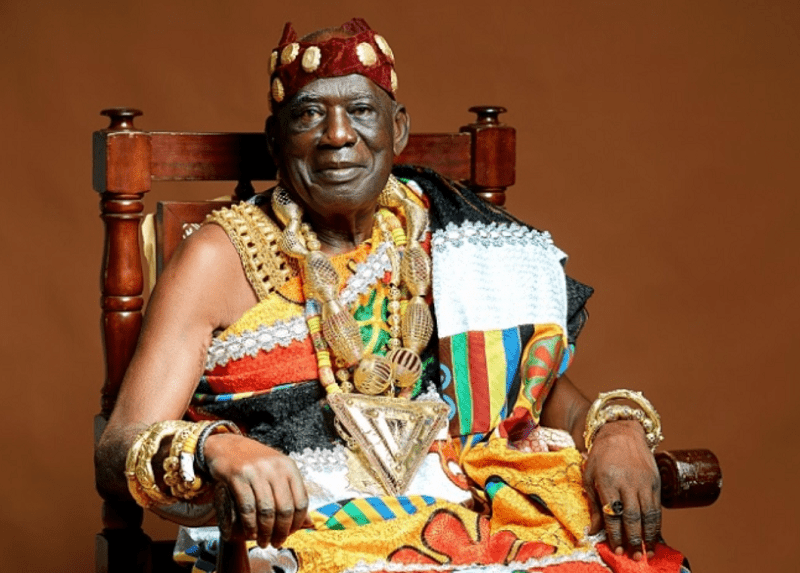
The ancient city of Cape Coast, one of Ghana’s historical cities, witnessed a showcase of the rich cultural heritage of the Oguaa people with an exciting, colourful, and traditional event to mark the celebration of the 61st annual Fetu Afahye.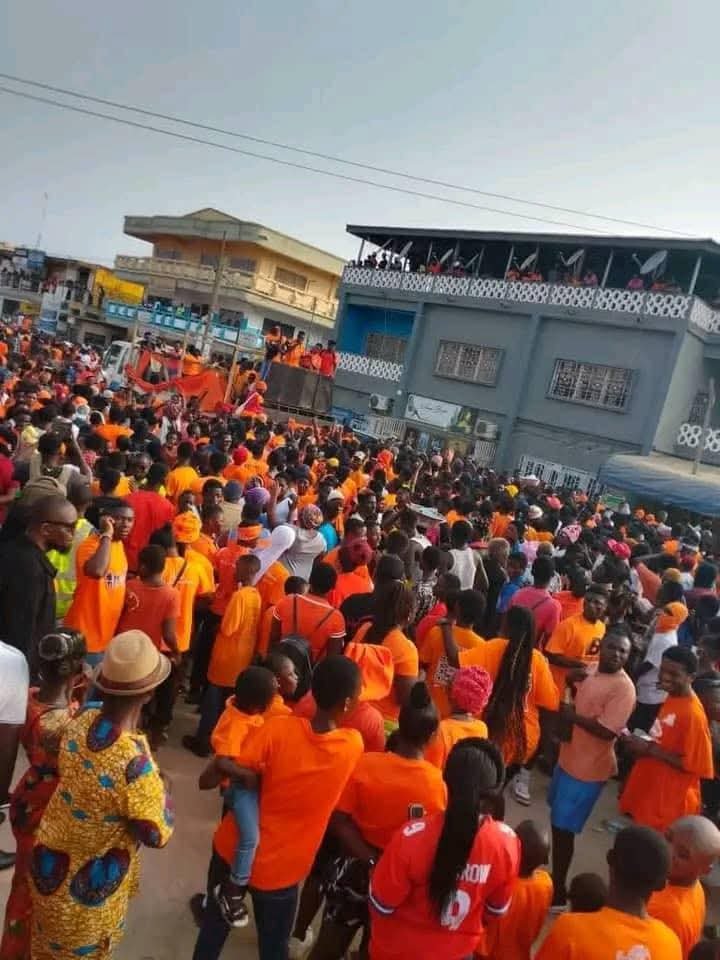
Themed “Innovate to elevate: Harnessing the creative economy for sustainable growth”, the festival featured a vibrant lineup of events, interspersed with several cultural performances showcasing the traditions which depict the traditional, historical and ancestral heritage of the land.
It witnessed a colourful procession of chiefs and various Asafo companies from the Mfantsipim School junction through the principal streets of the town to the Jubilee Park, accompanied by drumming and traditional dances.
The chiefs and members of the asafo companies were adorned in regal attire symbolising the pride and unity of the community.
Fetu Afahye demonstrates Oguaa’s resilience, unity, and cultural pride as the town welcomed indigenes both within and outside, as well as people from far and near, desirous of participating in the festival.
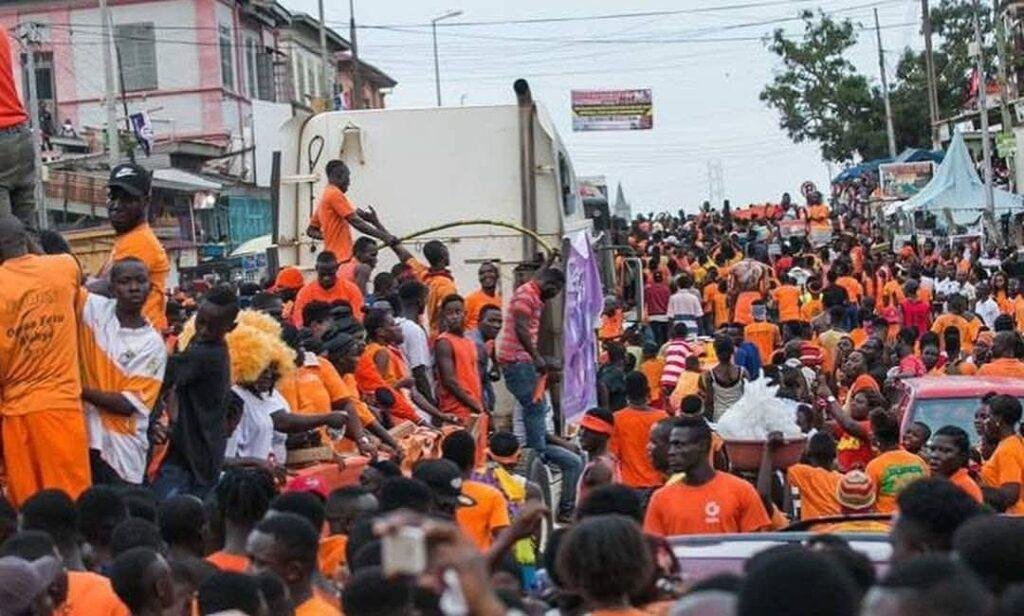
Various public spaces, including eateries and pubs, attracted patrons, and streets within the town witnessed bustling events with music blaring from the loudspeakers that had been placed by the roadside.
Bakatue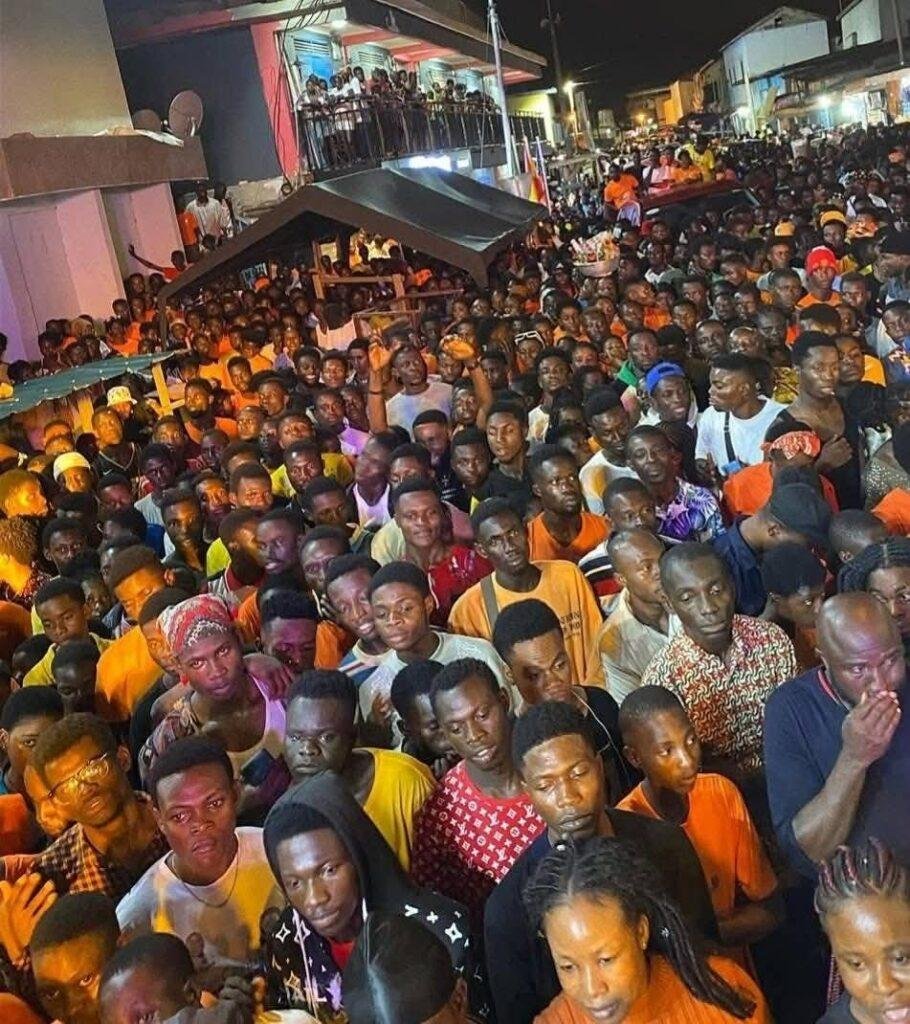
Prior to the durbar was the Bakatue regatta, a canoe race on the Fosu Lagoon, organised by ATL, a campus-based radio station located within the University of Cape Coast (UCC) in collaboration with the Oguaa Traditional Council.
The event saw a thrilling spectacle as the three Asafo companies, Nkum No. 4, Bentsir No. 1, and Anaafo No. 2, battled aggressively on the Fosu Lagoon. Nkum No. 4 earned nine points to clinch the trophy, medals, and a cash prize. They were followed by Anaafo No. 2 with five points, while Bentsir No. 1 finished third with four points.
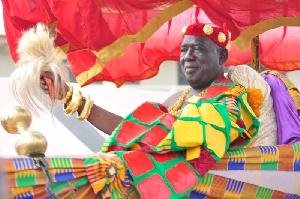
Orange Friday
Friday witnessed what has come to be known as the biggest street carnival in Ghana, known as ‘Orange Friday.’
It drew hundreds of people across the country. Clad in orange attires, the patrons gathered and moved through the streets of the town, creating a gridlock.
The Paramount Chief of the Oguaa Traditional Area, Osaberimba Kwesi Atta II, at the durbar of chiefs to climax the festival acknowledged the unifying factor in relation to culture among Africans and stated the need for Africans to take their destinies into their own hands.
He explained that festivals such as Fetu Afahye offer an opportunity for Africans to remind themselves of the future by working hard and embrace the future in order not to be taken by events.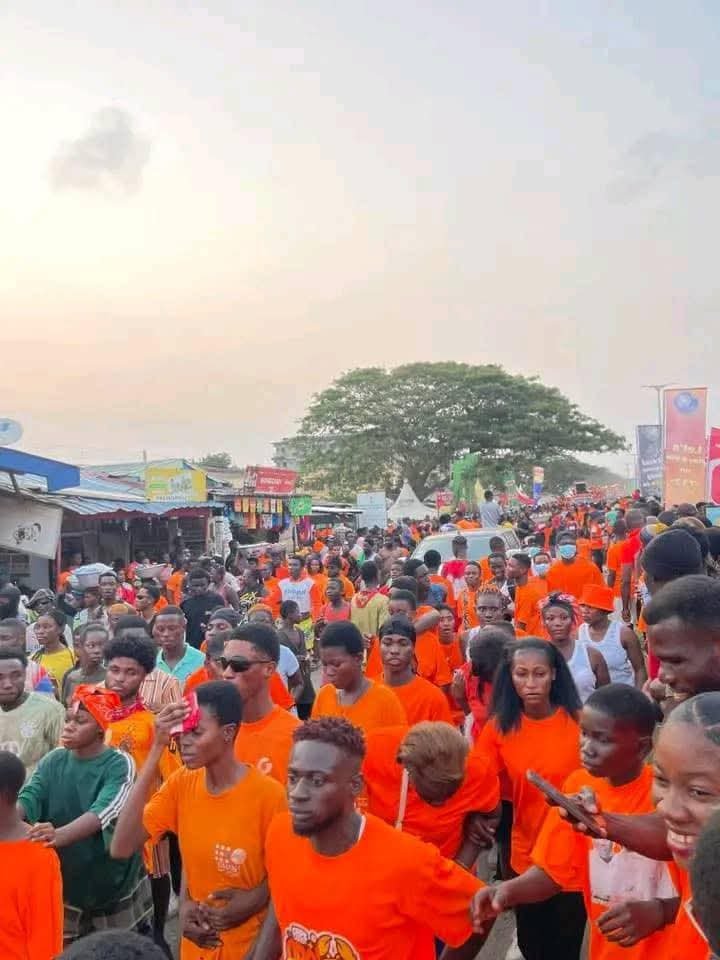
The Vice President, Prof. Naana Jane Opoku-Agyemang, in a speech read on her behalf, noted that the festival was far more than a ritual or an annual duty, saying, “It is an affirmation of an identity, a homecoming and a powerful testimony to the wisdom and fortitude of our forebears”.
In his remarks, the Special Guest of Honour, the Olu of Warri State in Nigeria, Ogiame Atuwatse III, indicated that, the only thing holding Africans back was Africans themselves, which he said, was in the area of an African identity, and acting on that identity.
From David O. Yarboi-Tetteh, Cape Coast
Join our WhatsApp Channel now!
https://whatsapp.com/channel/0029VbBElzjInlqHhl1aTU27
News
Prioritise affordable treatment of sickle cell treatment —Health Expert

Health experts have urged Ghana to prioritise affordable and accessible treatment for sickle cell disease (SCD) as advanced, but costly curative therapies remain out of reach.
SCD, an inherited blood disorder, affects about three in every 100 newborns in Ghana.
Globally, around 1,000 babies are born with the condition daily, with three-quarters in sub-Saharan Africa.
The disease causes severe complications including chronic pain, anaemia, infections, strokes and organ damage, often leading to shortened life expectancy.
In recent years, gene therapy has been developed as a potential cure.
However, its cost—running into millions of dollars per patient—makes it financially and technically inaccessible in Ghana.
According to Dr Lawrence Osei-Tutu, a Sickle Cell and Childhood Cancer Expert at the Komfo Anokye Teaching Hospital, “the country must instead focus on practical, lower-cost interventions such as hydroxyurea”, a decades-old cancer drug proven to reduce painful episodes, hospitalisation and life- threatening complications in SCD patients”.
Taken orally, the medicine improves red blood cell function and is considered safe and effective.
“Hydroxyurea therapy is as good as the cure and a low-hanging fruit to pluck, we must bring a cure to our sickle cell warriors, but do so sustainably.” he urged.
In a chat with The Spectator here, he said to create awareness on the disease, the expert noted that despite its benefits, “hydroxyurea is not widely accessible in Ghana.”
Stressing that, “many patients either cannot afford it or struggle with irregular supply through the health system.”
Moreover, he argued that scaling up access would provide immediate relief while the country builds the infrastructure, trains specialists and secures funding needed to support curative therapies in the future.
With an estimated 15,000 babies born with sickle cell disease annually in Ghana, Dr Osei Tutu cautioned that “failure to improve access to effective treatment will leave many patients vulnerable to preventable complications and early death.”
From Kingsley E. Hope, Kumasi
Join our WhatsApp Channel now!
https://whatsapp.com/channel/0029VbBElzjInlqHhl1aTU27
Hot!
Let’s reintroduce Cultural Studies to complement educational reforms — Tourism Minister

Madam Abla Dzifa Gomashie, the Minister of Tourism, Culture and Creative Arts, has emphasised the importance of reintroducing Cultural Studies in schools as part of Ghana’s broader educational reform agenda.
She said Cultural Studies would complement existing efforts to reposition Science, Technology, Engineering and Mathematics (STEM) and Technical Vocational Education and Training (TVET) to promote digital literacy and expand Creative Arts education.
Speaking at the 2025 Homowo Festival of the people of Ningo-Prampram, held on the theme: “Education: The Best Legacy for our Children,” Madam Gomashie said cultural education was critical to national identity and development.
She noted that the festival’s theme aligned with the Government’s vision to transform education in Ghana and encouraged the youth to embrace it not only as a means of personal development but also as a way of preserving traditional values.
These values, including patience, wisdom, and hard work, were at the core of the Homowo celebration, the Minister said.
“Cultural festivals like Homowo are vital instruments for strengthening cultural identity, preserving historical memory, and fostering national unity. Additionally, festivals serve as platforms for educating the youth through storytelling, music, dance, and other traditional practices, while also providing opportunities for community engagement.”
Madam Gomashie highlighted the strong foundation that Ghana’s tourism was built on, which included culture, traditions, and the creative industry, collectively contributing to over GH¢4.8 billion to the economy.
“Festivals give tourists reasons to visit our country. Therefore, with the right infrastructure and the development of all the domains, the sector can do more than what has been recorded,” she added.
Mr Sam Nartey George, the Member of Parliament for Ningo-Prampram and Minister of Communication, Digital Technology and Innovation, commended the community for their vibrant participation in the festival. He announced plans for the construction of a new nursing training school in Ningo, aimed at expanding access to healthcare education in the area.
Nene Osroagbo Djangmah XII, Paramount Chief of Great Ningo Traditional Area; King Dr Tackie Teiko Tsuru II, Ga Mantse; Nene Tetteh Wakah III, Paramount Chief of the Prampram Traditional Area; Prof. Odaifio Welentsi III, Paramount Chief of the Nungua Traditional Area; Naana Dugbakuwor Dugba II, Paramount Queen Mother of Great Ningo; and Mr. Elvis Afriyie Ankrah, Special Envoy on Religion and Inter-Faith Affairs, who represented the Chief of Staff, were among dignitaries at the festival. -GNA














